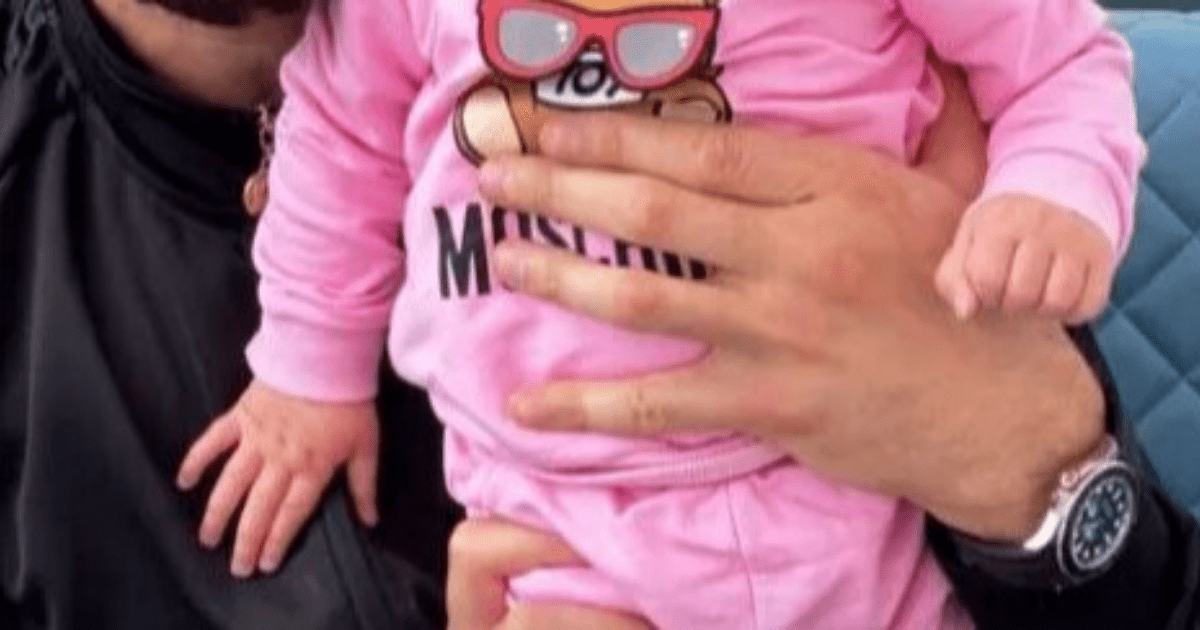TYSON Fury has revealed for the first time how the near-death of his baby daughter sparked his greatest win in the ring.
Athena was born prematurely last year — just weeks before the Gypsy King’s epic 11th-round KO of Deontay Wilder.
Tyson Fury says his daughter Athena’s fight for health inspired his boxing success
Wilder punches Fury during the WBC Heavyweight Championship in 2018
 The Gypsy King and wife Paris never gave up on daughter Athena
The Gypsy King and wife Paris never gave up on daughter Athena
Here, in exclusive extracts from his new book Gloves Off, Tyson reveals the incredible tale…
I am The Gypsy King — a bona fide legend and a once-in-a-lifetime superhero.
But boxing isn’t my entire world. The reality is I’m a husband, a dad, a son, a brother, an uncle.
My family are my armour and Paris and my six beautiful kids are always in my thoughts because they’re so precious to me.
On the eve of my 2021 fight with Deontay Wilder I slept on a hospital floor as our youngest child, Athena, fought for her life shortly after being born.
I had a split draw with Wilder in 2018 and beat him in 2020.
I hoped that my rematch against him in 2021 would be a Hollywood-style ending to my dark days of depression.
But then Athena was born prematurely at the beginning of August 2021 in the Royal Lancaster Infirmary, just two months before the fight.
At first everything went well with the birth. I held my new daughter for the first time, and everything was perfect.
There had been no signs of anything being wrong during the pregnancy.
Then the midwife plucked her out of my arms and within minutes everything was kicking off.
Apparently her heart was beating too quickly, and at first I didn’t think anything of it.
Then everybody around us seemed to be panicking.
Athena was hooked up to a machine, doctors were pushing buttons and taking readings and her heart rate had rocketed to 300 beats per minute, when it should have been closer to 120bpm, and there was nothing the nurses could do to fix the problem.
They injected her with something that seemed to slow everything down, to around 140bpm, but then she spiked all the way up again.
The consequences were terrifying.
If Athena’s heart rate couldn’t be steadied she would probably die from a cardiac arrest.
Watching the medical staff rushing around her and Paris was horrible, though I knew they were both in safe hands.
After being born, I’d died and been resuscitated three times – the NHS had kept me going well enough.
Still, that did little to ease the sense of total helplessness I was experiencing.
I saw nurses sedating Athena; someone was putting a tube down her throat to assist her breathing; and while everybody seemed to be acting calmly amid the chaos, there is nothing a parent can do in a situation like that, other than to watch and pray.
I’d been reduced to nothing.
My baby’s life was hanging in the balance and my name and what I did for a living wasn’t going to change a thing.
‘TERRIFYING’
In the end, it was decided that Athena should be blue- lighted to the Alder Hey Children’s Hospital in Liverpool, and once there, her heart rate was stabilised.
It was so hard to see her on an incubator, with several tubes and wires coming out of her body.
She looked so tiny and vulnerable, and even though her situation had improved, the doctors were warning us we weren’t yet out of the woods.
Athena’s heart rate was still all over the place, and at any given moment she might die.
As Paris recovered and Athena started her battle, I bedded down in the Ronald McDonald House, an accommodation for parents attached to the hospital.
Nothing could dissuade me: I was crashing there until Athena had stabilised. But every day my head span.
Though it was the last thing on my mind, at some point, I was going to have to think about the upcoming fight with Deontay Wilder.
If it was to go ahead, my preparation would have to happen at breakneck speed.
 Athena was in ICU weeks before the showdown with Deontay Wilder
Athena was in ICU weeks before the showdown with Deontay Wilder
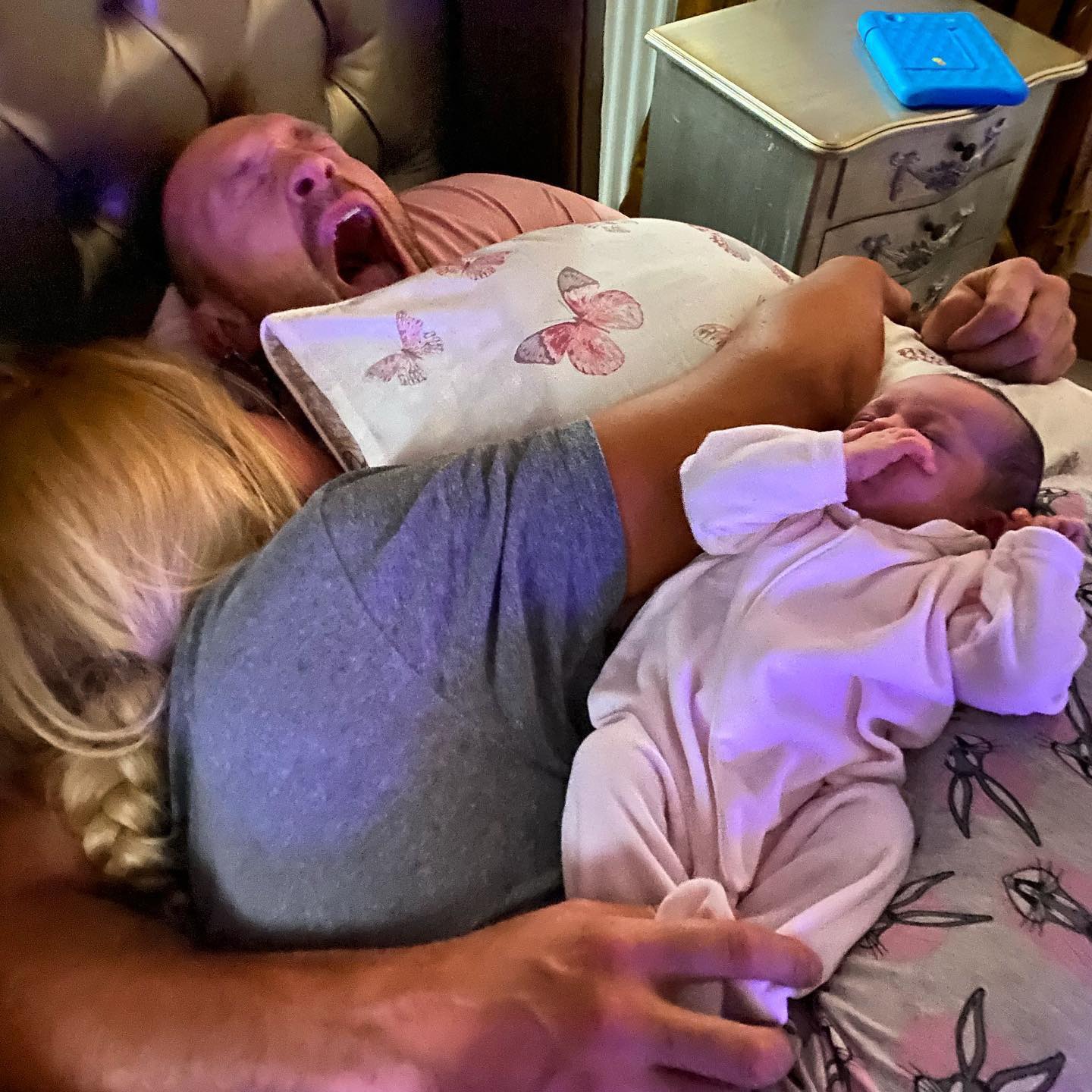 Little Athena was fighting for her life while Tyson was trying to prepare for his title bout
Little Athena was fighting for her life while Tyson was trying to prepare for his title bout
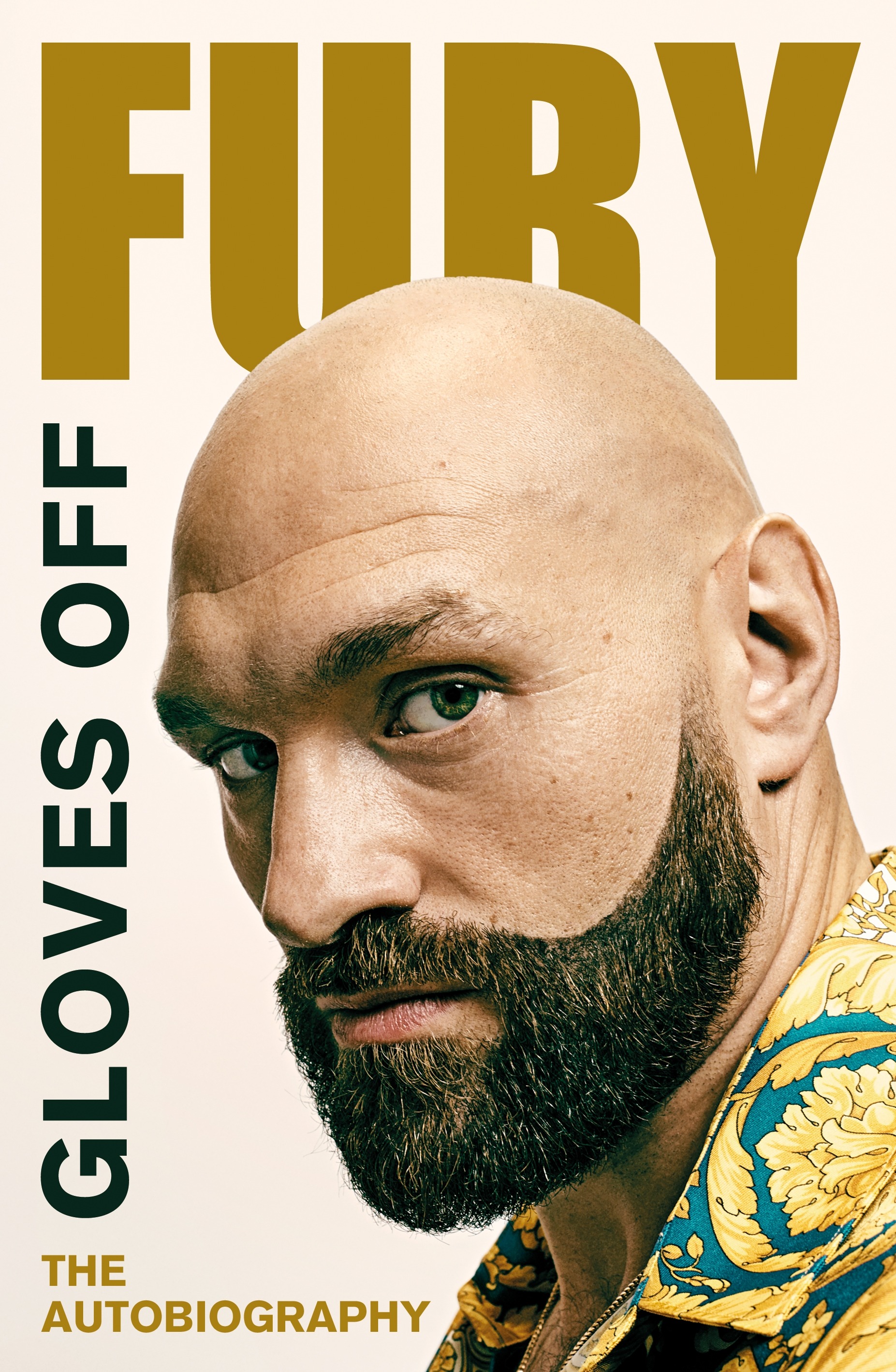 The boxer’s new autobiography Gloves Off, is out on November 10
The boxer’s new autobiography Gloves Off, is out on November 10
Once my schedule was pieced together, I estimated I had around four weeks to get into fighting form. It wasn’t long, but I could still make it.
At the Alder Hey Hospital the doctors were giving Athena life-saving treatment.
The good news was that she’d been taken off the incubator and there were some signs of improvement, so whenever Paris and Athena were resting, I went to work.
To tackle Wilder, I needed to make the most of every opportunity, and a day or so after the birth, I started a jog around the hospital with Dad.
I wasn’t in the best of shape at the time because I’d been struggling to eat well, what with being in and out of Alder Hey.
I’d also not long recovered from Covid and my lungs felt like two sheets of sandpaper whenever I put in a shift.
Puffing a little, I’d probably only done around three miles when my phone started ringing. It was Paris. She was hysterical.
‘The baby’s died,’ she screamed. ‘The baby’s dead. She’s dead. She’s dead . . .’
I sprinted to the ward as fast as I could, fearing the worst.
My chest burned, my legs were in agony, and as I ran I tried my best to console Paris.
‘It’s going to be alright,’ I panted down the phone. ‘Let the doctors do their job. Don’t worry . . .’
When I made it to her bedside, there seemed to be a hundred medics crowding around Athena.
Apparently, she’d become completely unresponsive while Paris was holding her, then her heartbeat had faded away to nothing.
Athena was resuscitated, but Paris was now losing it.
A nurse was trying to calm her as the specialist staff went to work. I couldn’t believe what was happening.
Eventually, to our enormous relief, and with the grace of God the doctors were able to steady Athena.
We were told she would have to remain in hospital until she’d made a full recovery.
In the end it would take three weeks before she was allowed home and for much of the time I slept at the Ronald McDonald House, or on the floor of the hospital ward, feeling exhausted, praying for her to pull through safely, knowing that some parents never got to take their babies home.
It hurt me to see her in the cot, attached to a bleeping machine.
A lot of the time Paris and me would sit there, staring at our baby.
Keeping the worrying news from the kids was a tough job too.
All of them were excited to meet their new sister – Venezuela, Prince John James, Prince Tyson Fury II, Valencia Amber and Prince Adonis Amaziah. We didn’t want to tell them that Athena had nearly died because we didn’t want to worry them.
After what felt like an age, Athena had recovered enough for us to leave hospital at the end of August.
I immediately went back to work, even though I probably could have postponed the fight.
It’s not as if I didn’t have a good reason for requesting a delay.
Sleeping rough on the floor of a hospital wasn’t the best way to prepare for anything, let alone a world heavyweight title bout against a man who was talking up my murder.
But what was the point in looking for excuses? It was now or never. I’d had a tough time for sure, but not as tough a time as Athena – and she’d shown the strength and willpower to fight her way back to life.
I would turn her battle into fuel.
And I did. I beat Wilder with an eleventh round knockout – in one of the most epic fights of all time.
It was Athena’s successful battle which inspired me to win mine.”
- Adapted from GLOVES OFF by Tyson Fury, published by Century on 10th November in hardback and audiobook.
- Tyson Fury v Derek Chisora for WBC & lineal Heavyweight Championship of the World will be broadcast exclusively on BT Sport Box Office. Tickets for the event at Tottenham Hotspur Stadium on Dec 3 are available now at ticketmaster.co.uk
 Tyson Fury and his family
Tyson Fury and his family
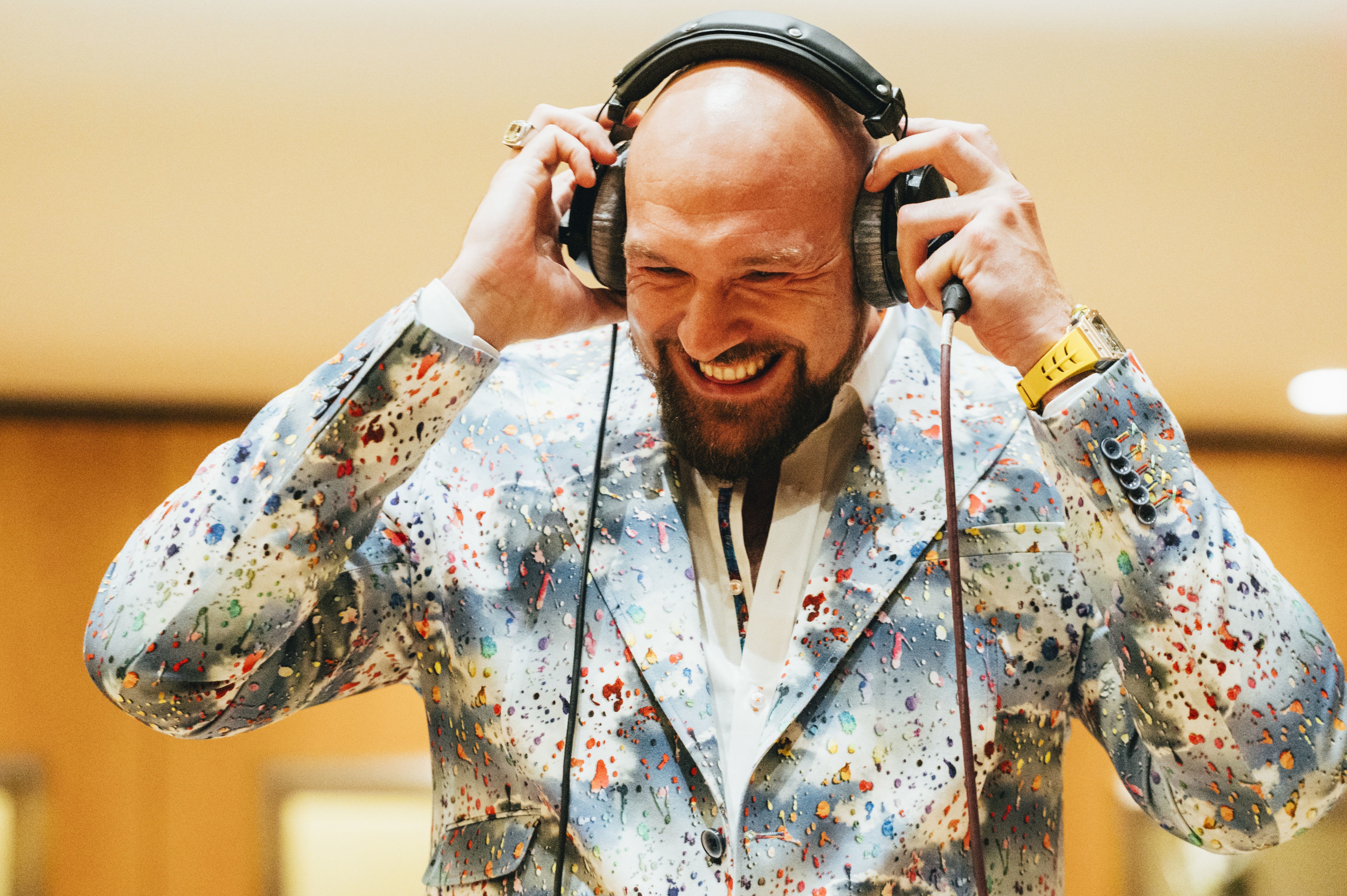
Fury recording his debut single – the Neil Diamond classic Sweet Caroline
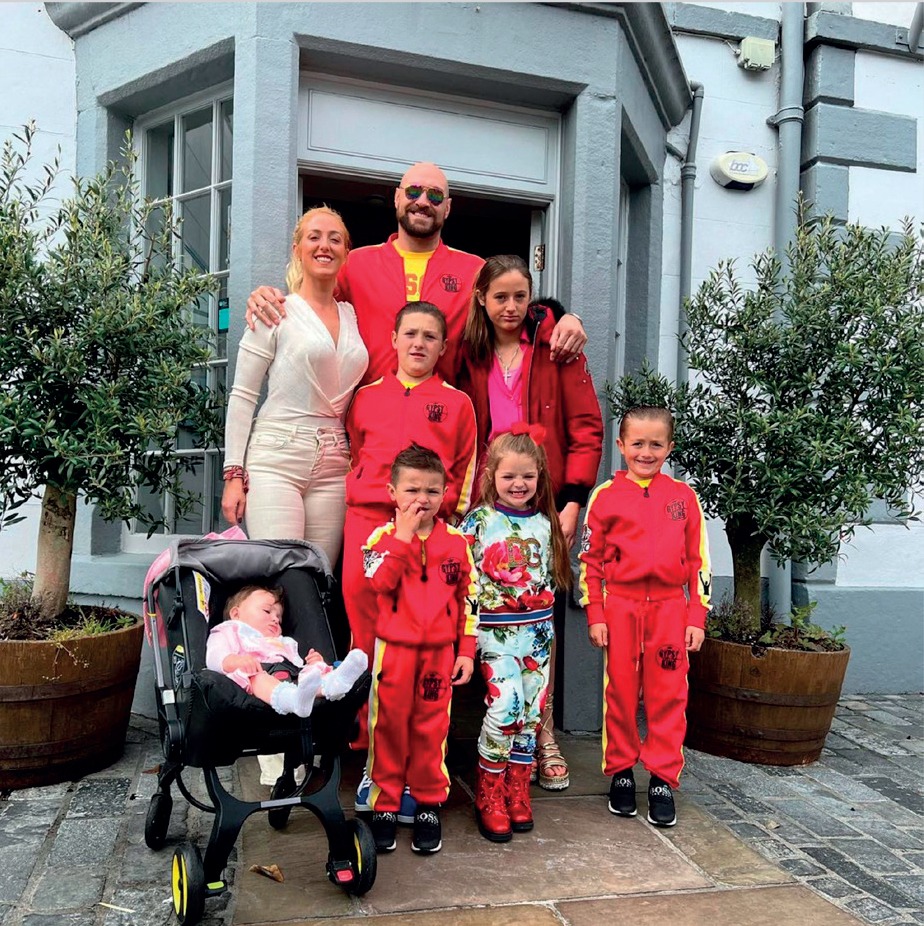 The couple with their six children
The couple with their six children
Frequently Asked Questions
How do you train boxers for beginners?
Boxing is one, if not the oldest, sport in existence. But boxing only recently became more popular. Two fighters are matched up in boxing. They punch each other until one of them falls.
Find out if you are interested in boxing before you start thinking about becoming a boxer. You can also watch fights online to see how it feels like hitting someone. Once you decide whether you would enjoy being a boxer, you’ll need to choose which style of fighting you’d prefer.
How many punches does a human take to get through a round?
A punch is defined as “a blow delivered from a fist”. One punch is all that a human can take. You are punching someone in the face if they hit you. You can’t hit him/her in the back. It would be impossible to hit him/her back with two punches.
What are the benefits to boxing?
There are many health benefits associated with boxing. For starters, boxing helps build strong muscles and bones. Boxing can improve your coordination and reflexes. It also strengthens your heart and lungs. Boxing does not require special equipment. You can use any item you have at home.
Statistics
- You want to be running at roughly 75-80% of your top speed..5 mile slow, easy recovery jog at the end.[6]X Research source 2Mix in long runs, shadow boxing, and short sprints on non-interval days. (wikihow.com)
- It is just like normal sparring with a partner, but you want to throw punches at 75% of your normal speed. (wikihow.com)
External Links
expertboxing.com
boxandflow.com
How To
These are the basic skills of boxing
How to box effectively
Boxing is one of the most popular sports in the world. It is made up of two competitors who aim to knock the head off each other. Each country has its own rules. In general, there are three types of boxing; Amateur, Professional and Olympic boxing.
Amateur boxing is often practiced at school, college, or university. This boxing style includes sparring sessions without protection, using padded gloves. Amateur boxing competitions typically last for three rounds, each lasting five minutes. There are many different styles of amateur boxing including Kickboxing, Muay Thai, Taekwondo, Karate, Judo, Wrestling and others.
Boxing is typically practiced in clubs, stadiums or gyms. They are protected by protective equipment like a mouthpiece, nose protector, shinguards, elbow pads and knee pads, waist belt, and groin protection. Professional boxing contests last six rounds and last for four minutes each. There are several different styles of professional boxing including Boxing, MMA (Mixed Martial Arts), Kickboxing, Muay Thai, Taekwondo and others.
Olympic boxing is practiced at the Olympics. International standards require that boxers use special protective gear. The competition lasts approximately three minutes for each round. Olympic boxing is limited to two styles: Light Flyweight and Heavyweight.
Boxing is based on the following skills:
- Punching techniques
- Guarding techniques
- Footwork
- Stance
- Move your body
- Defense
- Combination
- Rotation
- Spare parts
Punching Techniques
There are seven types: Left Hook (right hook), Right Hook (uppercut), Cross (cross), Straight, Overhand, Underhand. Each punch comes with its own technique. Some punches need more power than others. For example, an uppercut is a powerful punch. However, a straight punch is much more powerful and faster than other punches.
There are many combinations that can be used to punch. These are combinations which combine several punches in order to achieve a specific goal. A combination may have multiple parts. For example, a combination of a left and right hook will result in damage to the opponent’s jaw.
Guard Techniques
A boxer uses his body to protect himself against attacks. He does so by using his arms, elbows and hands as well as his knees, knees and legs.
Legs
Boxers must use their legs to defend themselves against kicks. If he gets kicked, he raises one leg and turns away from his attacker. To avoid being kicked on his side, he will bend his knees if the attack is from the front. He will block the kick with his foot if the attack is coming from behind.
Elbows
Because they inflict pain, elbow strikes can be very effective. An elbow strike can be delivered either directly or indirectly. Directly means that your opponent is hit with your forearm. However, indirectly means that your elbow strike is delivered with another part or your arm.
Hands
Boxers use both their hands and arms to prevent incoming blows. To do so, they raise their fists above their head and move them towards the direction of the attack. They then make contact with their attacker’s fist.
Knees
Boxers should bend their knees when receiving blows to the abdomen, stomach, or chest. For defense purposes, knee strikes are common.
Feet
If he is being attacked, a boxer must take a step back and counter-attack. He can then gain distance from his opponent. Additionally, boxers need to maintain their balance when they counter-attack.
Stances
Boxing is only possible if a boxer has a clear stance. The way he defends him will be dictated by his stance. It defines where he faces his opponent and how he positions his body. There are many stances available to boxers. These are some of our most favorite:
- Low stance
- High stance
- Southpaw stance
- Western stance
Move your body
In order to win a fight, a boxer must move around his opponent. This requires changing your position, speed, and rhythm.
Rotation
When a boxer throws a punch, he rotates in order to increase the reach of his arm. You can rotate at different speeds depending upon the punch.
Combinations
Timing of each punch is crucial to the effectiveness of a combination. A combination that is effective starts with a strong punch, and ends with one that is weak.
Spare parts
Sparring is a form of boxing that aims to improve your skills. A sparring session is where a boxer trains both his mind and his body. Sparring is a way to learn how to fight without getting hurt.
Learning to box takes dedication and patience. To become a better boxer, you must train hard and for a long time.

